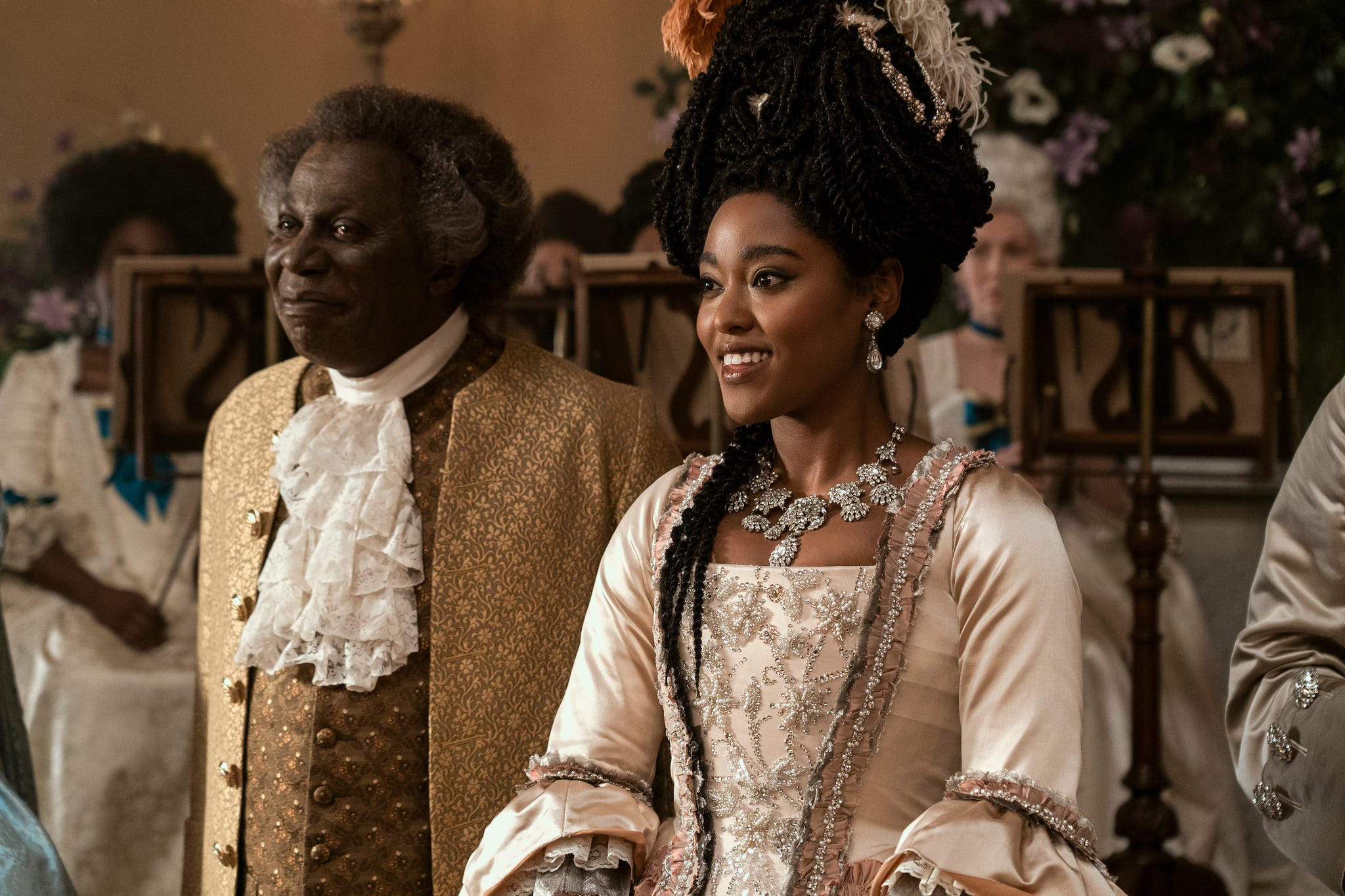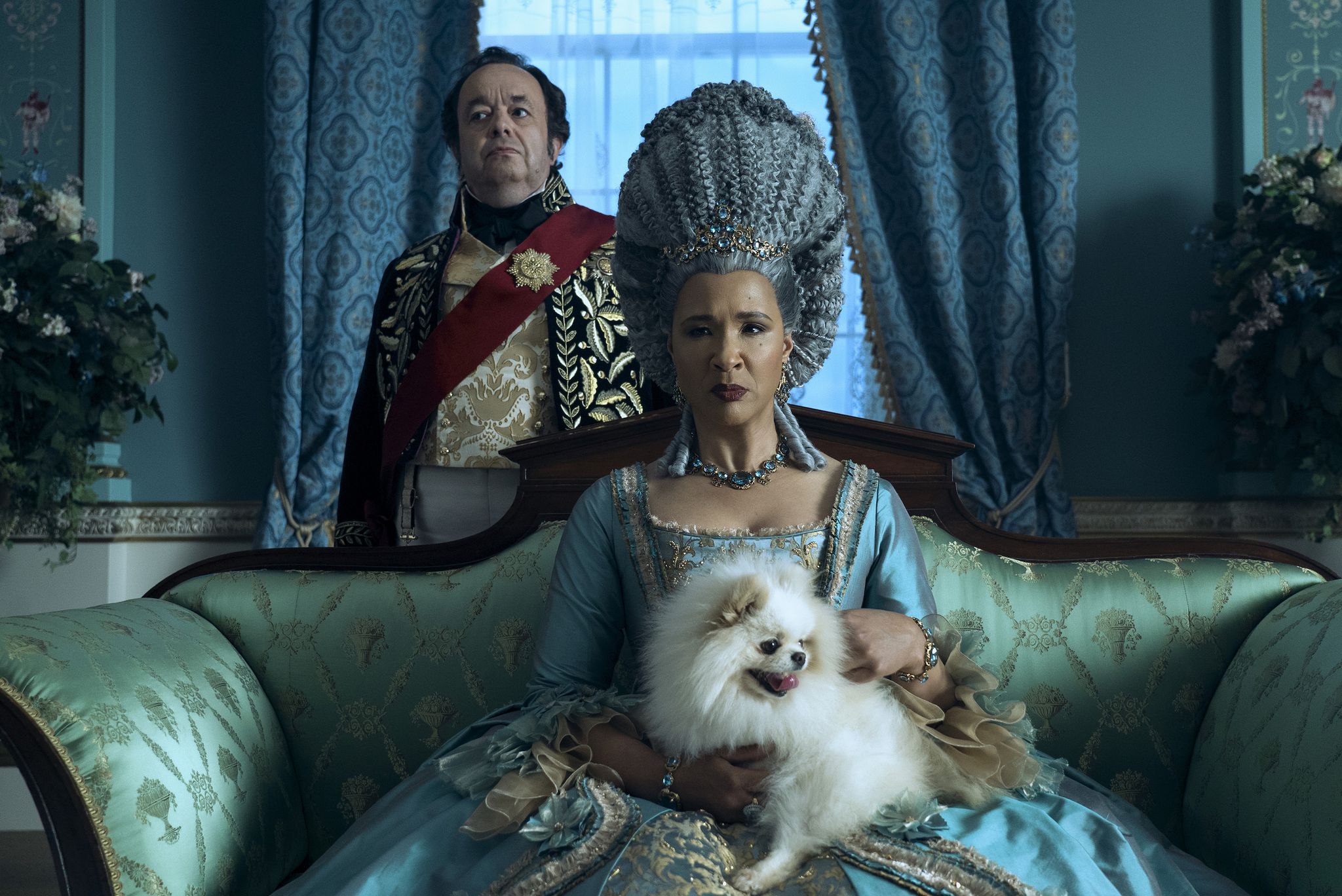Disclaimer: This is NOT a spoiler free review, but nothing major like a certain revelation about Lady Danbury that was revealed (WOH). If you've heard of the Mad King George, then you probably won't feel spoiled. Or if you've watched Bridgerton and paid any attention to the relationship between Queen Charlotte and King George.
TLDR: Don't go into this expecting some period fluff filled with sex and romance, but do go into this getting ready to have your eyes opened to representation and your heart broken by mental illness.
TLDR: Don't go into this expecting some period fluff filled with sex and romance, but do go into this getting ready to have your eyes opened to representation and your heart broken by mental illness.
I have a lot of thoughts and emotions about this show, none of which I was expecting to have. Sure, I enjoy the Bridgerton series. But to me, it's no Stargate. Stargate evokes all kinds of feelings from me no matter how many times I rewatch it. I'm a fangirl, but not a Bridgerton fangirl. I've always been more into Fantasy and Sci-fi than Romance. But Period Romance has a certain draw for me. Maybe it's my obsession with Jane Austen.
Bridgerton has well rounded characters and emotional stories, but nothing like Queen Charlotte. She's a fun character on Bridgerton, but I found myself downright engrossed in her story during Queen Charlotte. She's of Moor blood. Quick history lesson that I learned when I heard about the fuss over Gwen being cast as a black woman on Merlin (insert huge eyeroll over that mattering): Moors were what POC were referred to in the 17th century. (read more here) What does that mean? It means having her as queen is a big effing deal.
Queen Charlotte doesn't shy away from that BFD at all. We see the reality of the social divides caused by skin color in talk about "our side" and "their side" as well as dismissal that a man of the same money, breed, and education can't possibly be an equal simply because he has darker skin. Living in the south, this mentality isn't different from what we see here just because you slap a British accent on it.
The eye opener for me was the raw emotions evoked from seeing a queen with darker skin. It wasn't just how Agatha tried to convey what she represented to the new queen, but more to do with how the other POC looked at Queen Charlotte at every turn. It wasn't the usual fangirl awe depicted when in the presence of royalty, but of pride and pure joy of seeing her--the kind of joy that comes from someone constantly cast aside finally being seen. We see the ripples of representation and not only the joy that brings, but the fear that it will be snatched away as well.
As a white woman, that's not something I can fully comprehend. I can't appreciate the impact it has on a young girl to finally see her favorite Disney princess look like her, or for a man or woman of color to always be looked down upon (if they are even seen at all) until their queen is crowned. Queen Charlotte explores representation from so many different angles and probably with subtler ways that I might not recognize. Even the queen herself doesn't fully grasp the importance of her role and being the first of her kind, as Agatha puts it. Maybe that's her life of privilege showing or perhaps her young age--probably both.
Granted, our young queen is also pretty heavily distracted by her own issues at home once George's mental illness is revealed. And now we're onto the second thing I appreciated about this show: the way mental illness effects the people around you. Now, I don't mean that in a bad way. When you love someone, you're in it together for the good, the bad, and the in between. But more what I'm referring to is the way loved ones try to help. First, you have the desperate dowager princess doing what any mother might do and desperately trying to find a cure for the disease they don't understand and protecting him by hiding it from everyone. Then you have the best friend (or in this case, manservant) who doesn't know what to do but shield and enable George as best he can. And then the wife, who believes that love can cure him.
I get that this is a period piece and there was a lot that they didn't understand about mental health or medicine in general (leeches??), but that part still resonates. Especially when you lose someone to a mental illness or addiction. There's this feeling of responsibility, like if you love them hard enough then you can cure them. It's heartbreaking to watch Charlotte in the first stages of this process that will last her entire life even as she shoulders a nation and the responsibilities of the crown. This balancing act and the grief that comes along with not being able to heal him with her love gives a new depth and understanding to her character on Bridgerton. She's not a hard person. She's a person that life has been hard to, and one that has to mask that pain behind her regal air. I'm looking forward to seeing more of her in Bridgerton season 3.



No comments:
Post a Comment